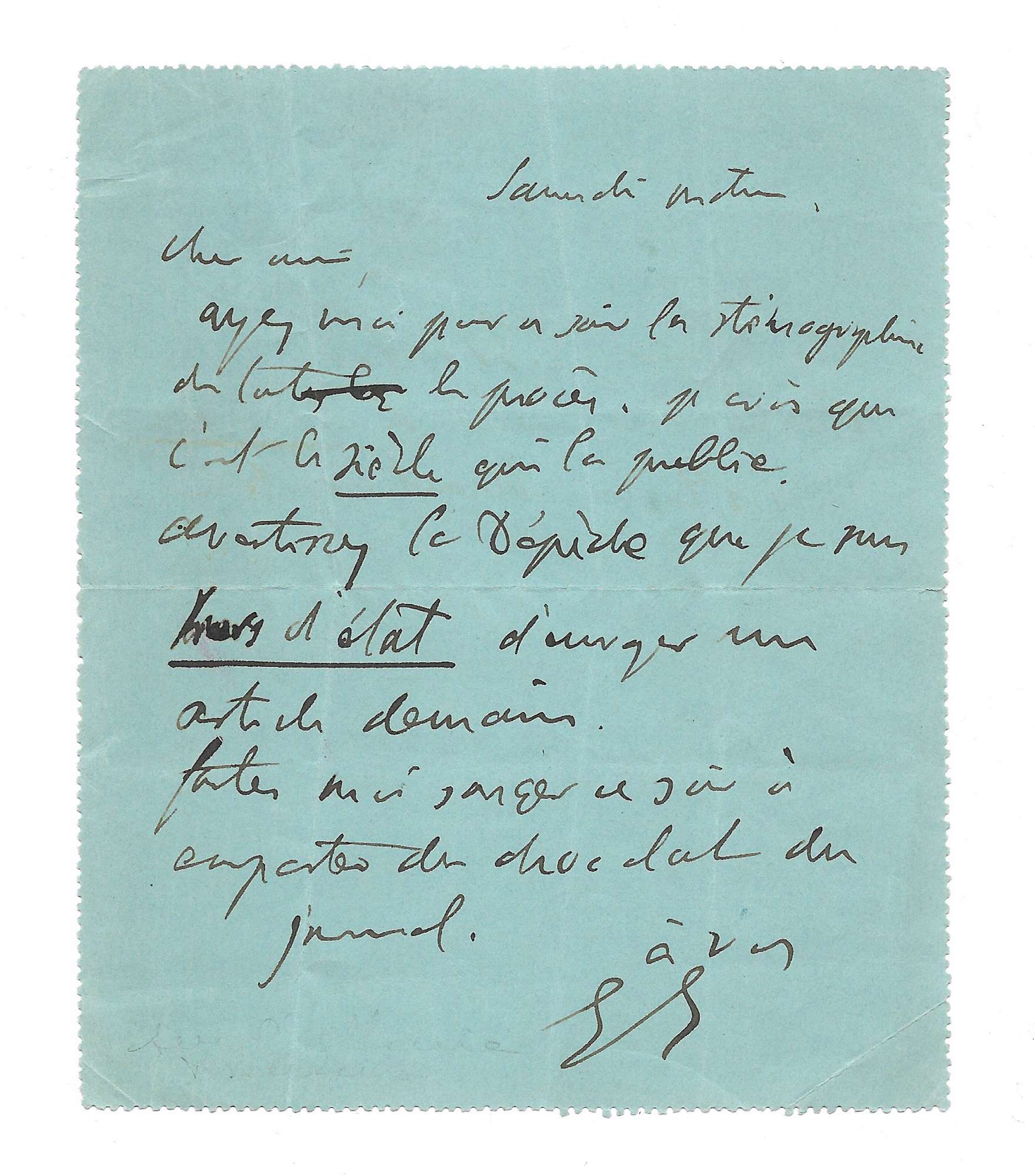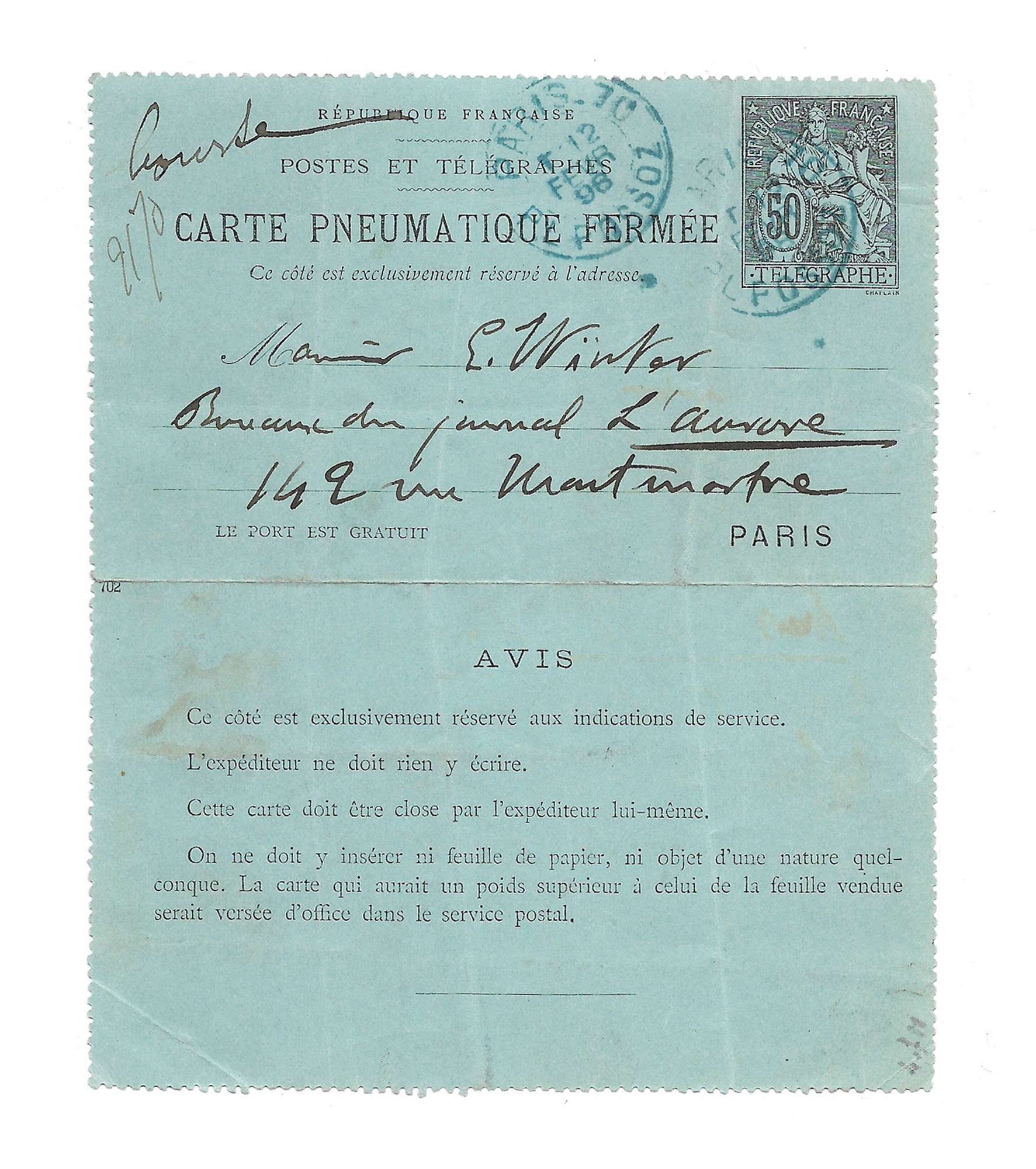CLEMENCEAU, Georges (1841-1929)
Autograph letter signed “G.C” to his secretary Étienne Winter at the L’Aurore newspaper
Paris, February 12, 1898 (post office), 1 page in-8, pneumatic letter
“Have me for tonight the shorthand of the whole trial“
Fact sheet
CLEMENCEAU, Georges (1841-1929)
Autograph letter signed “G.C” to his secretary Étienne Winter at the L’Aurore newspaper
Paris, February 12, 1898 (post office), 1 page in-8, pneumatic letter
Clemenceau, then editor-in-chief of the newspaper L’Aurore, asked his collaborator to provide him with a full report of the Zola trial in the middle of the Dreyfus affair, a month after the publication of “J’Accuse… »
« Cher ami,
Ayez moi pour ce soir la sténographie de tout le procès. Je crois que c’est Le Siècle qui la publie. Avertissez la dépêche que je suis hors d’état d’envoyer un article demain. Faites moi songer ce soir à emporter du chocolat du journal.
A vous.
GC »
In 1894 Clemenceau was one of Dreyfus’s opponents: he wrote an article in the newspaper La Justice entitled “The Traitor” and advocated the death penalty for treason. But vice-president of the Senate Scheurer-Kestner, possessing exculpatory elements, informed Clemenceau who ended up convinced of Dreyfus’s innocence, and thus changed his editorial line starting November 1897. Clemenceau was then keen to request the review of the trial, pointing to the obvious irregularities and false accusations.
This was followed by the publication of “J’Accuse…” by Emile Zola on January 13, 1898. Then 665 pro-dreyfusard articles were printed in the newspaper’s columns over several years, until 1903.
In this “petit bleu” billet, addressed to his editor of the newspaper L’Aurore Etienne Winter, Clemenceau calls for the complete shorthand of the whole trial, which is actually published in the newspaper Le Siècle as a supplement. We are here in the middle of a Zola trial held from 7 to 23 February 1898.
It should be noted that, on an exceptional basis, and by authorization from the President of the Cours d’Assises, because Clemenceau was not a lawyer, he was exceptionally allowed to plead. In a brilliant text he attacked the leitmotif of the military: res judicata pro veritate habetur…



